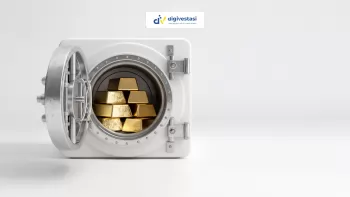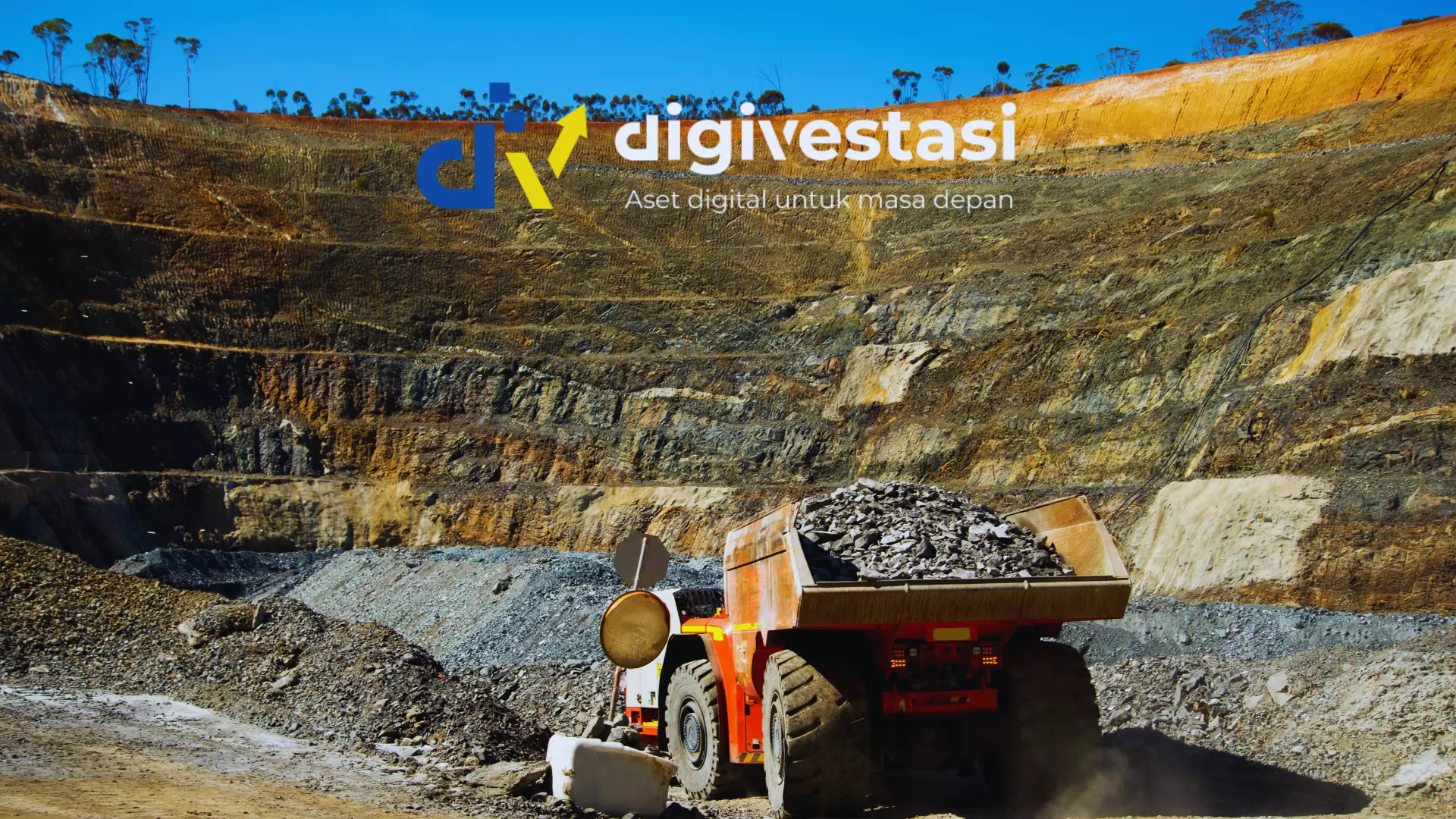
Digital Investment
Gold Prices Hit All-Time High Today - Here's Why!
/index.php
Saham News - Posted on 23 January 2024 Reading time 5 minutes

DIGIVESTASI - As Indonesia pushes to stop the mass use of nickel for electric car batteries, lithium ferrophosphate or LFP technology has emerged as an alternative. Several global car manufacturers are currently using LFP technology as an alternative to nickel-based batteries, such as Tesla, BYD, and Wuling.
In addition, LFP battery technology is a competitor to nickel-based powered batteries. The presence of various electric car battery technologies is justified because electric car battery technology has developed rapidly in recent years. Given Indonesia's position as the largest nickel producer, Vice Presidential Candidate Number 02 Gibran Rakabuming Raka then questioned the position of Presidential Candidate Number 01 Muhaimin Iskandar (Cak Imin).
Gibran, who is passionate about promoting mineral consumption, challenged the choice of the Anies Baswedan-Muhaimin Iskandar winning team (Timnas Amin), which often criticizes the use of nickel for car battery electricity. "LFP is an alternative to nickel. In fact, there are countries that do not want to use nickel. Does that mean Gus Muhaimin is as resistant to nickel as Mr. Tom Lembong?" said Gibran during the vice presidential debate in Jakarta, Sunday (January 21, 2024).
Responding to Gibran's question regarding nickel downstreaming, Cak Imin emphasized that the added value of minerals still needs to pay attention to environmental ethics or the preservation of regional ecosystems. "This balance is non-negotiable so that our development is sustainable," said Cak Imin. For information, the vice captain of the Anies Baswedan-Muhaimin Iskandar winning team (Timnas Amin) previously assessed that President Joko Widodo's (Jokowi) administration was too focused on nickel and electric cars. This causes government policy to be narrow.
In addition, the nickel and electric car industries are capital-intensive industries rather than labor-intensive. Although this provides added value to the country's economic growth, it is not accompanied by an increase in existing employment. "Because everything is capital-intensive, from mining that uses a lot of heavy equipment to smelters, this sector mainly benefits from investors who finance these capital-intensive industries," he said. This was revealed by Tom Lembong at the 2024 Political Conference - Opinions of 2029 Presidential and Vice Presidential Candidates. Industry, Downstreaming, and Climate Change broadcast at the Research Center YouTube Strategic and International Research (CSIS), Wednesday (June 12, 2023).
Foreign investment in Indonesia's nickel industry
The debate on the downstreaming of nickel mining cannot be separated from the fact that Indonesia is the world's largest nickel producer. Indonesia's nickel reserves are mostly spread across the provinces of Central Sulawesi, South Sulawesi, Southeast Sulawesi and North Maluku. Citing the Ministry of Energy and Mineral Resources' "Indonesian Nickel Investment Opportunities" report, Indonesia is said to have nickel reserves of 72 million tons of Ni (nickel). This amount is equivalent to 52% of global reserves which reach 139.41 million tons of Ni.
Referring to the United States Geological Survey (USGS) Mineral Commodity Summary (MCS) January 2023, Indonesia produced 1.04 million tons of nickel in 2021, then increased by 53.84% per year to 1.60 million tons in 2022. The total national nickel production in 2022 is equivalent to being 48.48% of the total national nickel production in 2022. Total global nickel production was 3.30 million tons. The increase in Indonesia's nickel production cannot be separated from the massive nickel downstream investment in recent years. In addition to domestic companies, foreign investment in Indonesia's nickel industry is also growing rapidly.
Increased investment in nickel mining began in 2014, when the government began banning nickel ore exports and requiring producers to refine raw nickel domestically. The policy was debated before finally being tightened in 2020. The government's ambition is to make Indonesia a major player in the electric vehicle industry because it has the world's largest nickel reserves.
Since 2020, several global battery car manufacturers and global car brands have begun to look at Indonesia. Bisnis noted a number of global investors have expressed interest and investment in Indonesia. BASF and Eramet, companies from Germany and France, have invested USD 2.6 billion or around Rp 38.54 trillion (assuming an exchange rate of Rs 14,825 per US dollar) for a factory to manufacture raw materials for electric batteries. BKPM said the investment of the two companies will be carried out in the second half of 2023.
In addition, there is also a duo of Korean brands, LG Energy Solution and Hyundai Motor Group, which are building a battery factory with an investment value of 1.1 billion USD. The plant, located in Karawang, West Java, will be operational in 2024. Nickel investment still comes mostly from Chinese investors.
For example, Zhejiang Huayou Cobalt, Tsingshan Holding Group, and China Molybdenum Cobalt made the first shipment of mixed nickel hydroxide deposits to China from Morowali in February 2022. Zhejiang Huayou Cobalt by the end of 2023 is also expected to have established cooperation with PT Vale Indonesia Tbk. (INCO) and Ford Motor Company in the nickel battery raw material project. There is also CATL Group, China's largest battery manufacturer, which is partnering with PT Aneka Tambang (Persero) Tbk. (ANTM) or Antam for electric vehicle batteries. Until now, in-depth discussions regarding the cooperation between the two parties are still ongoing.
CATL, in a battery project called Dragon, has committed to invest around USD 6 billion or equivalent to IDR 92.48 trillion (assuming an exchange rate of IDR 15,349/USD). Based on the business profile, the investment allocation will be made in stages over a period of 3-4 years in accordance with the development of upstream to downstream work in the electric battery industry with IBC.
Source: bisnis.com
What do you think about this topic? Tell us what you think. Don't forget to follow Digivestasi's Instagram, TikTok, Youtube accounts to keep you updated with the latest information about economics, finance, digital technology and digital asset investment.
DISCLAIMER
All information contained on our website is summarized from reliable sources and published in good faith and for the purpose of providing general information only. Any action taken by readers on information from this site is their own responsibility.